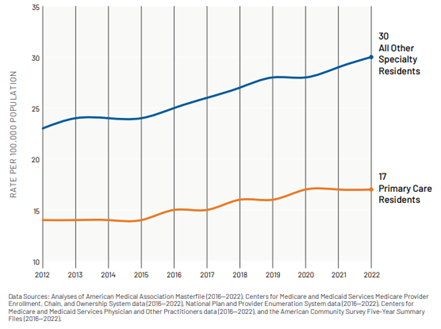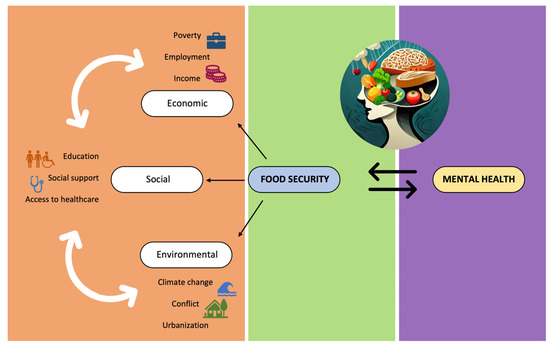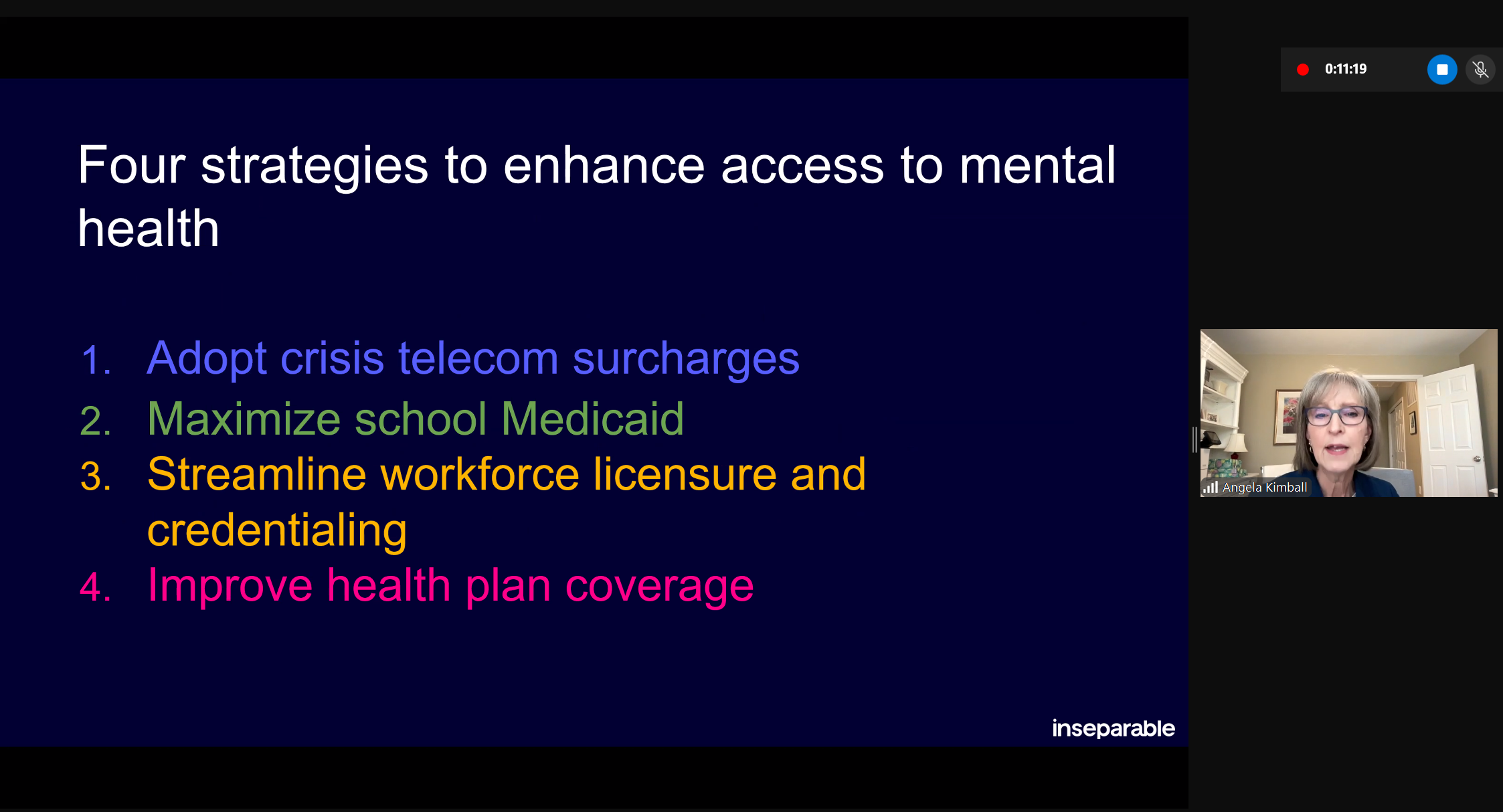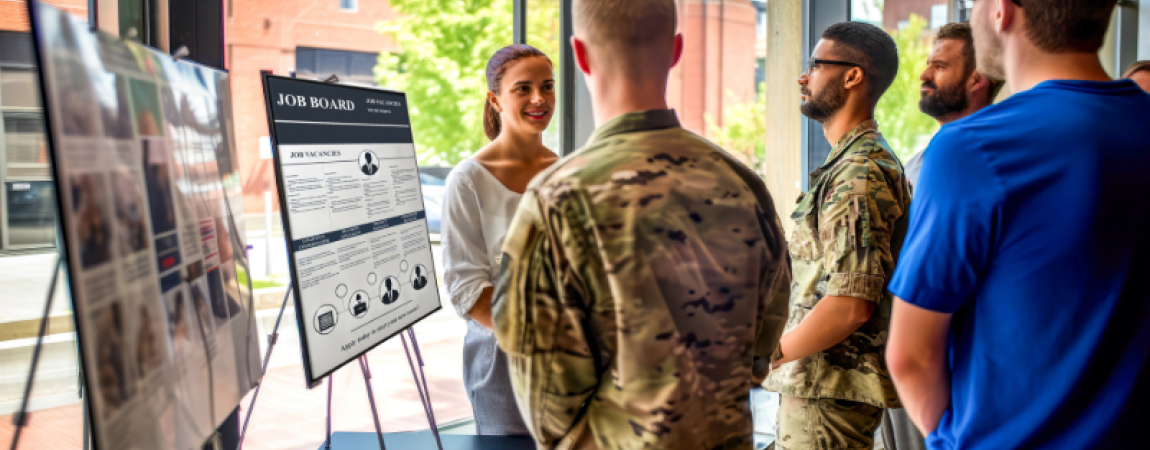The 2022 NGA Winter Workforce Symposium Highlight featured a session on empowering people leaving prison in the workforce through connecting them to higher education and employment opportunities.
by Rachel Hirsch
When people leave prison or jail and reenter society, they often face a variety of barriers that can make it difficult to successfully and permanently reacclimate and avoid returning to old destructive habits. One factor in whether reentry is successful is whether returning citizens can find good jobs and careers that not only keep them financially stable but also allow them to solidify a sense of community, structure, and purpose. Governors support strategies that assist these individuals in successful reentry for many reasons, such as reducing recidivism, helping people get back on their feet and attain financial stability, and helping employers find talented employees to fill their in-demand jobs.

This important issue was highlighted recently at the 2022 NGA Winter Workforce Symposium, which the NGA Center For Best Practices convenes twice yearly to bring together state workforce development leaders, including members of two affiliate associations: the National Association of State Liaisons for Workforce Development Partnerships and the National Association of State Workforce Board Chairs. This year’s Symposium, which brought together leaders from 29 states and the District of Columbia, featured a session on empowering returning citizens in the workforce through connecting them to higher education and employment opportunities, with speakers from Center for Employment Opportunities (CEO), Anti-Recidivism Coalition (ARC), and Dave’s Killer Bread Foundation.
Sam Lewis, now Executive Director of ARC, who had been previously serving a life sentence, spoke about the importance of starting meaningful engagement with folks while they are still incarcerated – whether that’s through job training, education, mental health services, and/or preparations for when they are released. The hand off immediately after reentry is also incredibly important, and organizations like CEO help aid in this pivotal period by providing returning citizens with transitional jobs. Leah Bacon, Senior Policy Associate at CEO, described how the organization achieves success in this area and provides participants not only with paid work experience but also with support in other areas of their life. These transitional jobs can help keep these individuals stable during a critical time and give them necessary experience to get into a more permanent career soon after.
However, employers often need training and guidance themselves on how best to engage these returning citizens. Genevieve Martin, Executive Director of Dave’s Killer Bread Foundation, spoke to how employers need to be taught how best to accommodate and support formerly incarcerated employees. Dave’s Killer Bread has made a point of hiring many justice-impacted employees and now, through their foundation, they offer training and peer learning to employers who seek to do the same. Many companies have found that formerly incarcerated employees are some of their most dedicated workers, which is certainly attractive to businesses in this competitive and transient job market.
States can consider multiple lines of effort to support successful reentry, including but not limited to:
- expanding access to higher education and job training in correctional facilities that connects individuals directly to further education or employment upon release;
- encouraging partnerships between departments of corrections, workforce and education, and community-based organizations;
- funding supportive services for returning citizens;
- assisting employers in hiring and retaining justice-involved workers; and
- enacting a variety of criminal justice policies that reduce burdens upon reentry, such as reducing fines and fees or assistance in obtaining a driver’s license.
In addition, states can make strategic plans now to prepare for the 2023 legislative change that will allow eligible incarcerated students to access Pell Grants. Connections and alignment between higher education and departments of corrections are especially critical at this juncture, and governors can take a leadership role in ensuring these groups work together closely to take full advantage of this upcoming change. The NGA Center is currently providing technical assistance to the Iowa Consortium for Higher Education in Prison to assist in scaling these critical educational offerings in prison, and has also helped Kansas create a plan to achieve broad criminal justice reform.
For more on our 2022 Workforce Symposium or to learn more about either the National Association of State Liaisons for Workforce Development Partnerships or the National Association of State Workforce Board Chairs, please click here.











